News
Interview: Jay Baruchel on Horror, Slashers and ‘Random Acts of Violence’
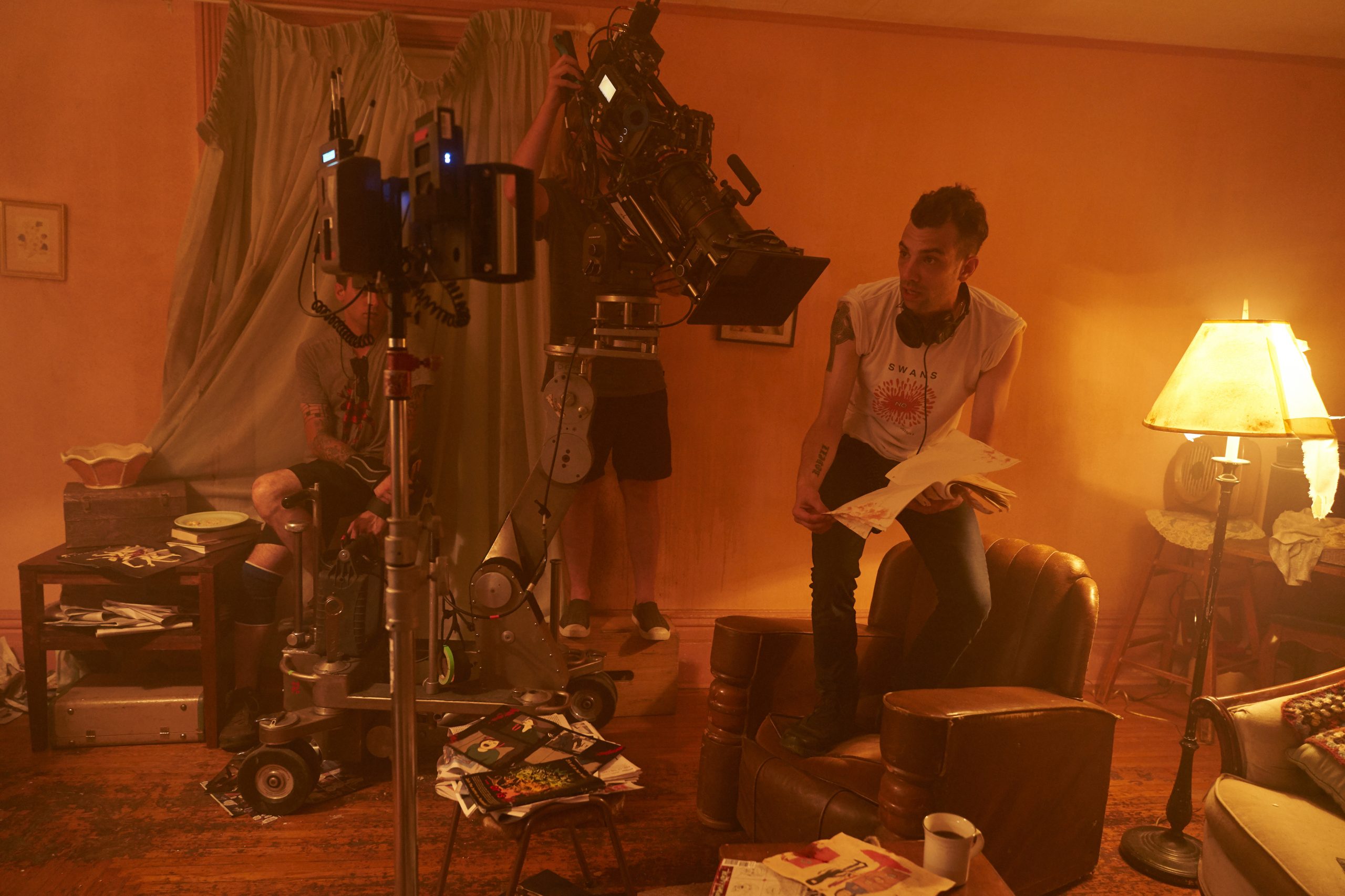
Jay Baruchel is an actor/writer/director/massive fan of the horror genre. For his second time directing a feature film (the first being Goon: Last of the Enforcers), it makes perfect sense that he’d dive into the genre head-first with Random Acts of Violence.
Based on a graphic novel of the same name (written by Justin Gray and Jimmy Palmiotti), Baruchel spent years working on the script with co-writer Jesse Chabot. The end result is a stylish, brutal, and well developed horror film that challenges its viewers, intentionally and openly prompting conversations on artistic responsibility and violence in our culture while splattering the screen with gore.
I sat down with Baruchel to discuss the horror genre, slashers, and the making of this compelling and vibrant film.
You can check out Random Acts of Violence in theatres and on-demand in Canada on July 31, or on Shudder US, UK, and Ireland on August 20.
Kelly McNeely: So Random Acts of Violence is based on a graphic novel. But you’ve got a lot of really great horror elements in there, too. What were your inspirations or influences when directing the movie and making those horror elements really kind of pop?
Jay Baruchel: Basically it all — this is going to sound super hokey — but it stems from a kind of an earnest desire to do something rather than, like, ‘this is the movie to guide our hands’. So basically we wanted to kind of come up with a language for on screen violence that was as close to the real thing as we could manage, you know, give or take. And when I say that, I mean we wanted it to unfold clumsily, and to have a stop-starty energy.
We wanted to sort of bury the choreography in it as best as we could, so that the audience was kind of out of control and sort of at the mercy of our sequences. And so there’s a few movies that we think kind of got there with their violence. I think it would be Zodiac and Irréversible, and basically every Scorsese flick. You know, his flicks are always harsh as fuck, but nothing happens that couldn’t actually happen. Even if it’s horrendous to look at, it’s still, you know, physics and anatomy have rules, and so we just kind of wanted to abide by those.
Touching on the sort of burying the choreography thing, our idea was like, there’s a social contract. And there’s a sort of music that comes from the social contract. We all wake up every day, we all have the same routine every day and when we’re out and about — this is obviously in a pre-fucking-COVID thing where people don’t know how to relate to one another anymore — but basically, when you leave your house, you make an agreement. I’m going to walk on the sidewalk, and I’m going to wait my turn, and I’m not going to hit anybody, and I’m going to pay my taxes, and I’m going to wait in line, and I’m going to get out of the way if someone’s running, whatever it is, there’s just a sort of music that’s happening that we all play along.
Kelly McNeely: This social contract that we all unknowingly sign.
Jay Baruchel: That’s exactly it, and from that comes a music that we might not even be able to put our fingers on, but you notice it when it stops. So if you’ve ever been out and about when a fight breaks out, or a fender bender, or the cops chase somebody, or somebody is kind of screaming, or somebody eats it, or whatever it is, the music is interrupted completely. And it’s now operating on its own meter, and you kind of don’t know that song. And you kind of have no idea where this is going to go. And we wanted our audiences to feel that.
If you’ve ever watched a movie before, you can reasonably assume once a sequence has begun, when it’s going to end. When you’re in an action movie, and you know, guns come out, they start shooting or somebody hits the ignition on a car, I know that I’m in for four to seven minutes of this. When the killer takes his knife out, same fucking thing, right? And how is that scary? If you know that all you have to do is weather the storm for this finite period that’s coming based on 100 plus years of cinema, which has just taught me that every sequence is a self contained thing unto itself. That gives you a control that I wanted the audience to not have.
My idea was, I want when a kill happens in our movie for the audience to be unaware of where it would go. I want to bury its choreography as best I can, I want to mute its telegraphing. Best case scenario would be when a kill starts in my flick that the audience is like, oh shit, is this just what the movie is for the rest of the 90 minutes? So it was that, and it was finding movies that we thought kind of got there.
And a lot of it was based on conversations in the backyard with my friend George, who choreographed all the fights in the movie. And he’s a very talented actor, but a very accomplished martial artist himself. And we’re both huge movie nerds, and we spend all of our time together when we’re not making movies. And so we get into plenty of ideological discussions, and a lot of times it comes down to fight scenes. And we were like, how come every glass shatters upon impact in the movie? How come every chair shatters upon impact in the movie?
Kelly McNeely: Every car explodes.
Jay Baruchel: Yes! And every punch lands sweet. Every block is perfect. None of that is real! And so that that was the spark that led to the kind of gore that we put in.
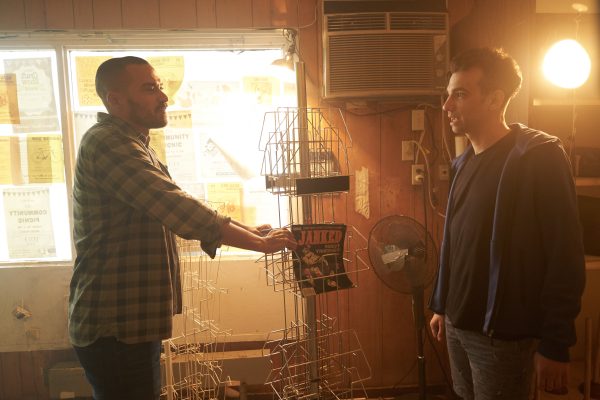
via Elevation Pictures
Kelly McNeely: You had Karim Hussein do the cinematography for Random Acts of Violence — I know he did Hobo With a Shotgun and Possessor, which are both fucking gorgeous — how did you guys develop a shared visual language when making the film? Because it does have such a very distinct visual language.
Jay Baruchel: Oh, awesome. I’m happy to hear you say that, see, I think so too. The thing I’m most proud of with the film is that it’s a hard one to describe. People say, oh so is it kind of like Cabin in the Woods or is it like Saw or is it like– and it’s not really any of that, it’s kind of its own thing.
Karim and I, our conversation about this movie really starts — one could argue — 20 plus years ago, because he and I have known each other since I was 15 or 16. Back in the day before he was a cinematographer, he was a writer director, and before he was a writer director, he was the founder of the Fantasia Film Festival in Montreal, and was a journalist for Fangoria. Fantasia was — I’ve been going to that festival since I was 14. And when I was 15 or 16, I was shooting a movie in Montreal called Matthew Blackheart: Monster Smasher, and Fangoria was covering it, and they sent Karim to cover it on set. And when I found out that he was one of the co-founders of Fantasia, I lost my shit and two nerds — you know what it is when two nerds find each other, and they just start speaking Linux — but then we sort of fell out of touch.
And then a few years ago, I saw him again via Jason Eisner who brought me over to an apartment, like some sort of little party type thing. And Brandon Cronenberg was there and Karim was there. And I said, Karim, man, I’ve been super proud of you from afar for the last 20 years, and he was like, “Yeah, likewise!”. So it was really cool for us to finally get to eventually make a movie, which is really the fruit of a nerdy discussion that lasted over two decades.
He comes in with a surplus of ideas. He has never yet run out of inspiration and something new, and Karim’s greatest interest is in doing something original. Now, you can’t always, and that’s just the way it goes. But that should be always the aspiration and the goal. And Karim is also kind of — I call him my artistic conscience. Like, every decision that was kind of the tougher one to make creatively, like if ever we were at a fork in the road and there was a sort of more palatable, accessible way to do something — which was rarely my instinct — but you know, I’m making a movie with a finite period of time with other people’s money, and I gotta get people to dig it. So, that palatability and accessibility conversation is ever present, it’s always there. And having someone like Karim, he’s the angel on your shoulder — or the devil, if you ask the producers I suspect — that he’s the one being like, now go harder. No, fuck it. You know, just trust what we came up with.
So I came in with a movie and he came in with a whole bunch of movies that we thought were kind of good reference points. I came in with The Red Shoes, which is an old British flick from the 40s or 50s — not remotely a horror flick, although I would argue it is kind of ultimately horrific — but it was more about just an energy I feel when I’m watching the flick, that I was like, oh, that in the color palette I think are kind of right for this thing. Karim comes in with a binder of DVDs.
His big instinct was that it was a steadicam flick, that was the spark that led to all of his inspiration and all of his ideas. The first kind of big one that seems to be was he’s like, I feel like the movie should live in a steadicam and be constantly flowing. And so the first movie that he kind of pointed out to me that was a pretty big inspiration for us — technically anyway — was White of the Eye, which is an 80s flick — an 80s serial killer flick — super fucking bonkers movie and really crazy photography, and when you see it, I think you would be able to see, “oh I see what he’s talking about”.
And then once we kind of knew the language, once we had kind of lifted enough ideas from other people’s films to start our own kind of vocabulary and language. Then while we’re having this conversation, Karim’s also like, “alright, so I read the script, I think I’m seeing amber and cyan”. I said, oh, I want pink. I want the color that is the aggregate effect of a Christmas tree being on when all the colors of the Christmas lights, when they’re all singing at once. Like it gives you a pink takeaway. And Karim comes in with amber and cyan — fire and water, those are his two big sort of motifs that he came in with.
And then in sort of going through literally six drafts of our shotlist in pre-production, we eventually realized what the look of the film is, which is — and this is the main story, not the flashback [within the film] — but the look of the film is the POV of a curious ghost. It’s a ghost that is not sort of married to anybody, but has a vested interest and was connected to everybody, and it’s sort of so our camera wanders and it finds little details and it finds pieces and then kind of you know… So anyway there’s a fuckin curious ghost. I guess I could have answered that way easier.
Scroll down to continue on Page 2
'Civil War' Review: Is It Worth Watching?
Follow our new YouTube channel "Mysteries and Movies" here.
Movies
‘Evil Dead’ Film Franchise Getting TWO New Installments
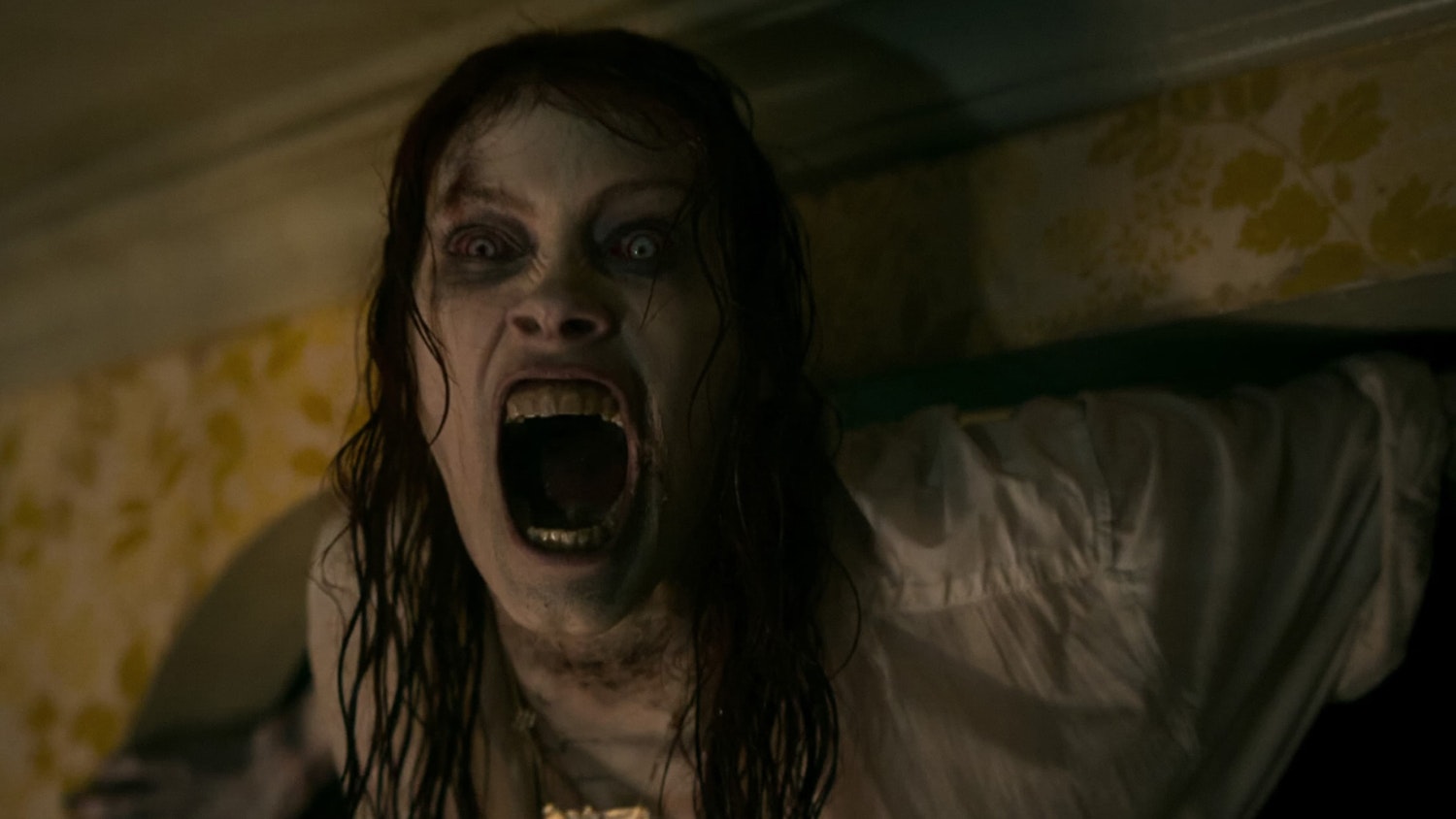
It was a risk for Fede Alvarez to reboot Sam Raimi’s horror classic The Evil Dead in 2013, but that risk paid off and so did its spiritual sequel Evil Dead Rise in 2023. Now Deadline is reporting that the series is getting, not one, but two fresh entries.
We already knew about the Sébastien Vaniček upcoming film that delves into the Deadite universe and should be a proper sequel to the latest film, but we are broadsided that Francis Galluppi and Ghost House Pictures are doing a one-off project set in Raimi’s universe based off of an idea that Galluppi pitched to Raimi himself. That concept is being kept under wraps.
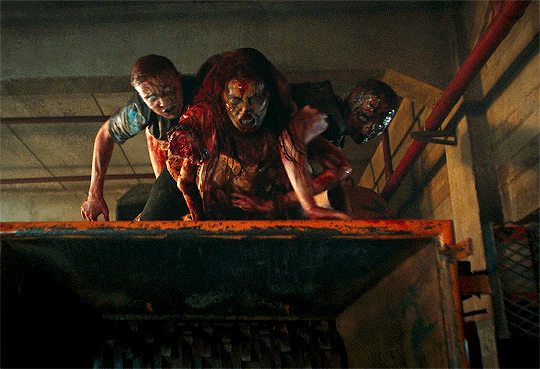
“Francis Galluppi is a storyteller who knows when to keep us waiting in simmering tension and when to hit us with explosive violence,” Raimi told Deadline. “He is a director that shows uncommon control in his feature debut.”
That feature is titled The Last Stop In Yuma County which will release theatrically in the United States on May 4. It follows a traveling salesman, “stranded at a rural Arizona rest stop,” and “is thrust into a dire hostage situation by the arrival of two bank robbers with no qualms about using cruelty-or cold, hard steel-to protect their bloodstained fortune.”
Galluppi is an award-winning sci-fi/horror shorts director whose acclaimed works include High Desert Hell and The Gemini Project. You can view the full edit of High Desert Hell and the teaser for Gemini below:
'Civil War' Review: Is It Worth Watching?
Follow our new YouTube channel "Mysteries and Movies" here.
Movies
‘Invisible Man 2’ Is “Closer Than Its Ever Been” to Happening

Elisabeth Moss in a very well-thought-out statement said in an interview for Happy Sad Confused that even though there have been some logistical issues for doing Invisible Man 2 there is hope on the horizon.
Podcast host Josh Horowitz asked about the follow-up and if Moss and director Leigh Whannell were any closer to cracking a solution to getting it made. “We are closer than we have ever been to cracking it,” said Moss with a huge grin. You can see her reaction at the 35:52 mark in the below video.
Whannell is currently in New Zealand filming another monster movie for Universal, Wolf Man, which might be the spark that ignites Universal’s troubled Dark Universe concept which hasn’t gained any momentum since Tom Cruise’s failed attempt at resurrecting The Mummy.
Also, in the podcast video, Moss says she is not in the Wolf Man film so any speculation that it’s a crossover project is left in the air.
Meanwhile, Universal Studios is in the middle of constructing a year-round haunt house in Las Vegas which will showcase some of their classic cinematic monsters. Depending on attendance, this could be the boost the studio needs to get audiences interested in their creature IPs once more and to get more films made based on them.
The Las Vegas project is set to open in 2025, coinciding with their new proper theme park in Orlando called Epic Universe.
'Civil War' Review: Is It Worth Watching?
Follow our new YouTube channel "Mysteries and Movies" here.
News
Jake Gyllenhaal’s Thriller ‘Presumed Innocent’ Series Gets Early Release Date
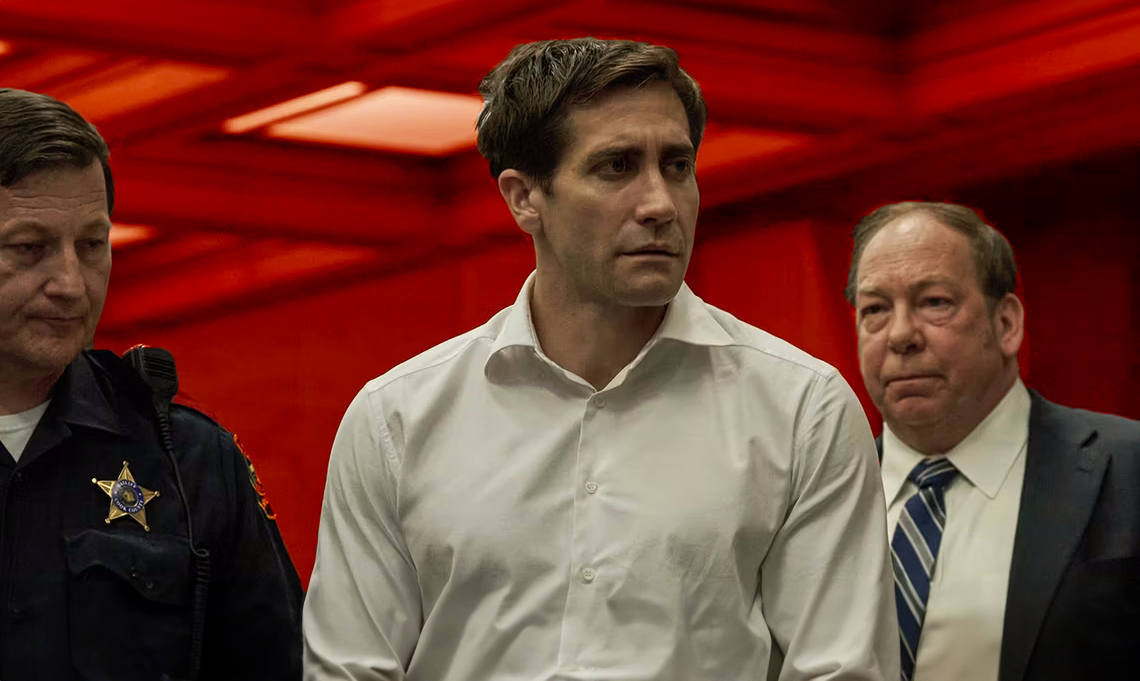
Jake Gyllenhaal’s limited series Presumed Innocent is dropping on AppleTV+ on June 12 instead of June 14 as originally planned. The star, whose Road House reboot has brought mixed reviews on Amazon Prime, is embracing the small screen for the first time since his appearance on Homicide: Life on the Street in 1994.
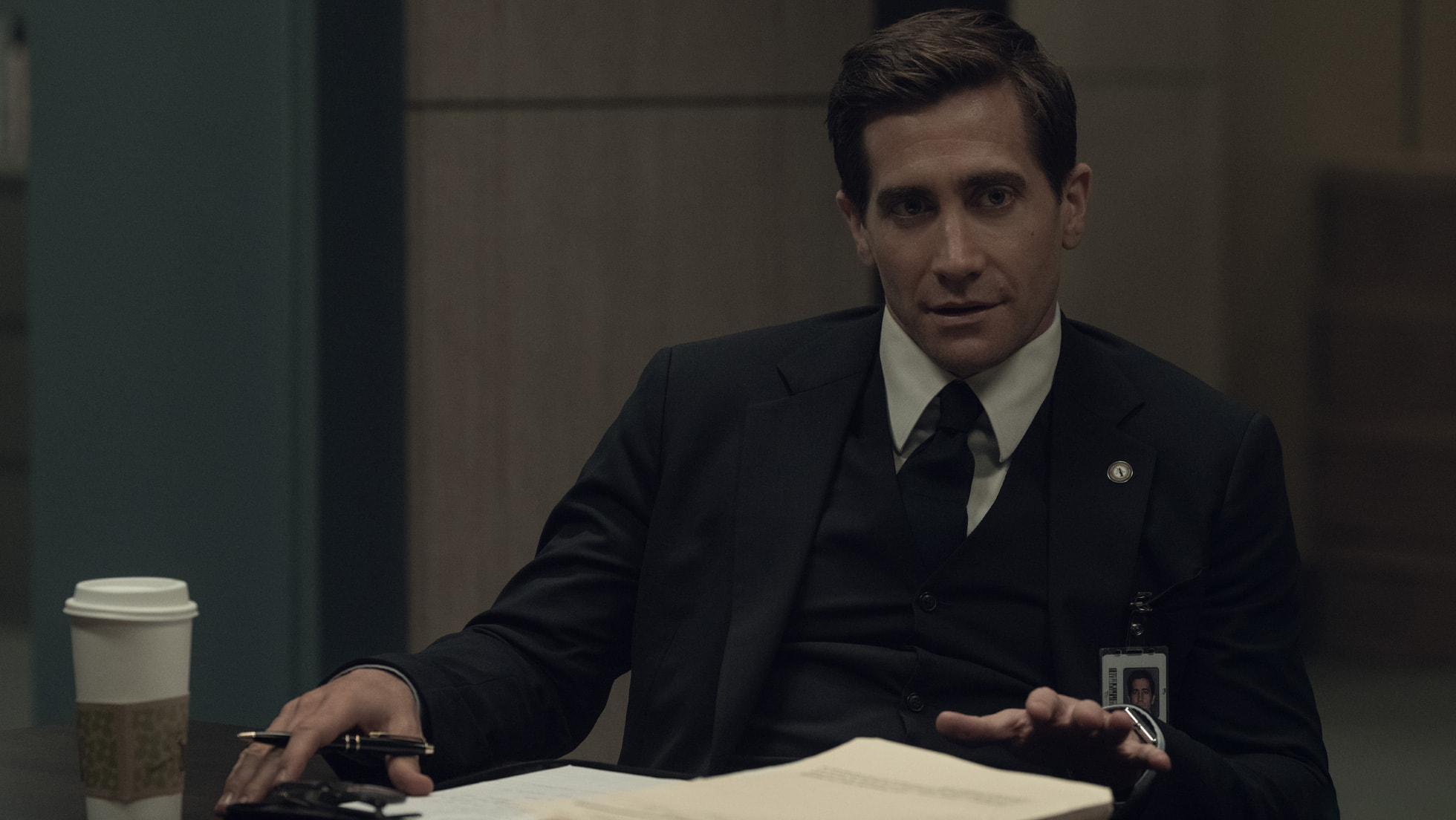
Presumed Innocent is being produced by David E. Kelley, J.J. Abrams’ Bad Robot, and Warner Bros. It is an adaptation of Scott Turow’s 1990 film in which Harrison Ford plays a lawyer doing double duty as an investigator looking for the murderer of his colleague.
These types of sexy thrillers were popular in the ’90s and usually contained twist endings. Here’s the trailer for the original:
According to Deadline, Presumed Innocent doesn’t stray far from the source material: “…the Presumed Innocent series will explore obsession, sex, politics and the power and limits of love as the accused fights to hold his family and marriage together.”
Up next for Gyllenhaal is the Guy Ritchie action movie titled In the Grey scheduled for release in January 2025.
Presumed Innocent is an eight-episode limited series set to stream on AppleTV+ starting June 12.
'Civil War' Review: Is It Worth Watching?
Follow our new YouTube channel "Mysteries and Movies" here.
-
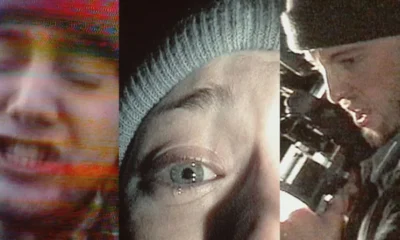
 News6 days ago
News6 days agoOriginal Blair Witch Cast Ask Lionsgate for Retroactive Residuals in Light of New Film
-
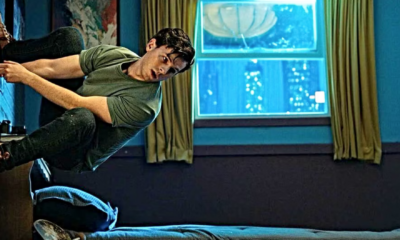
 Movies6 days ago
Movies6 days agoSpider-Man With a Cronenberg Twist in This Fan-Made Short
-
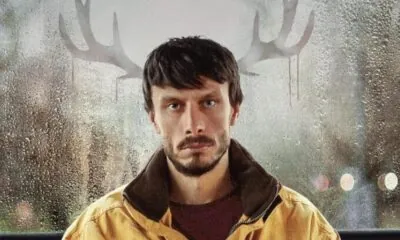
 News3 days ago
News3 days agoPerhaps the Scariest, Most Disturbing Series of The Year
-
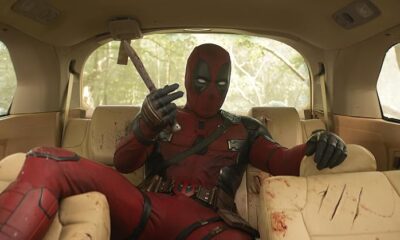
 Movies5 days ago
Movies5 days agoNew F-Bomb Laden ‘Deadpool & Wolverine’ Trailer: Bloody Buddy Movie
-
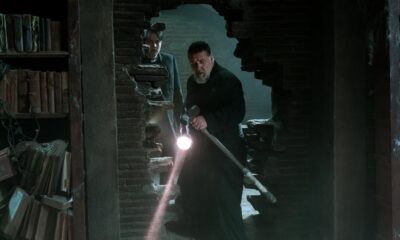
 News4 days ago
News4 days agoRussell Crowe To Star in Another Exorcism Movie & It’s Not a Sequel
-
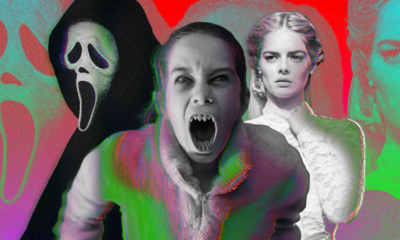
 Lists3 days ago
Lists3 days agoThrills and Chills: Ranking ‘Radio Silence’ Films from Bloody Brilliant to Just Bloody
-
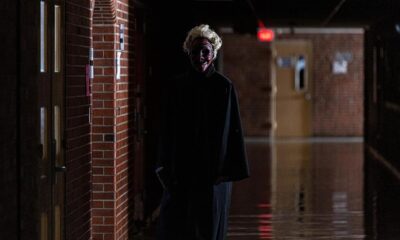
 Movies4 days ago
Movies4 days ago‘Founders Day’ Finally Getting a Digital Release
-
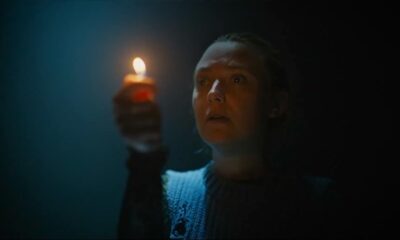
 Movies4 days ago
Movies4 days agoNew ‘The Watchers’ Trailer Adds More to the Mystery
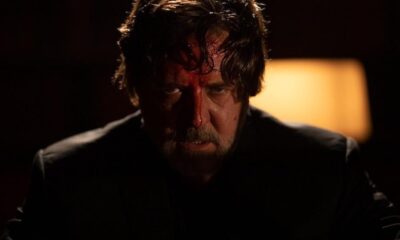

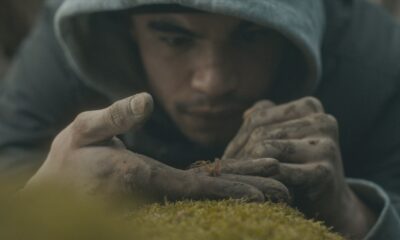

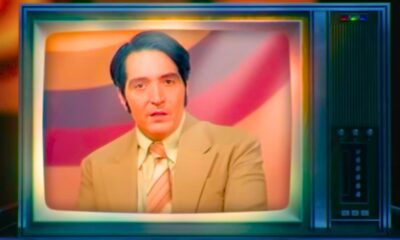


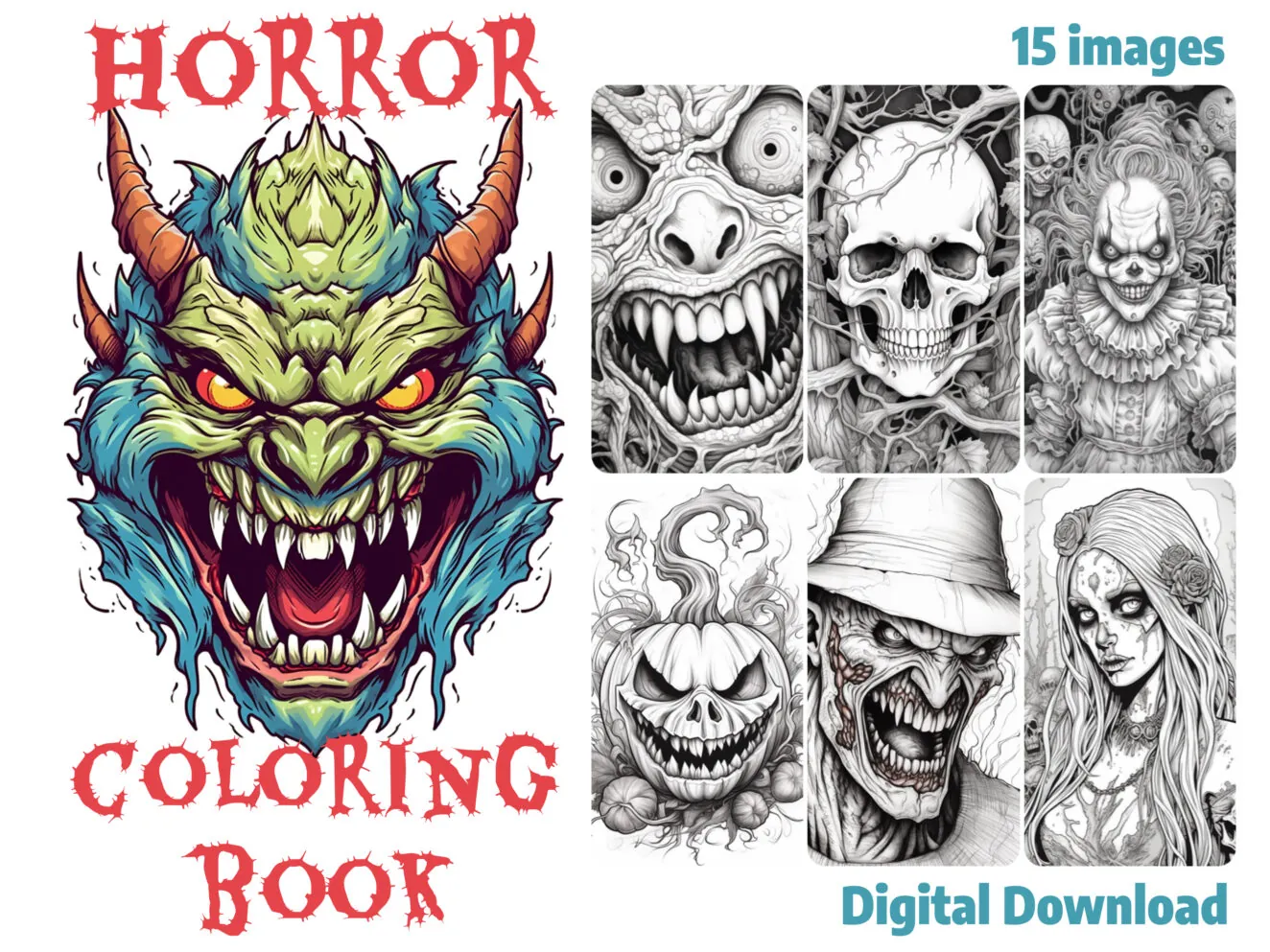
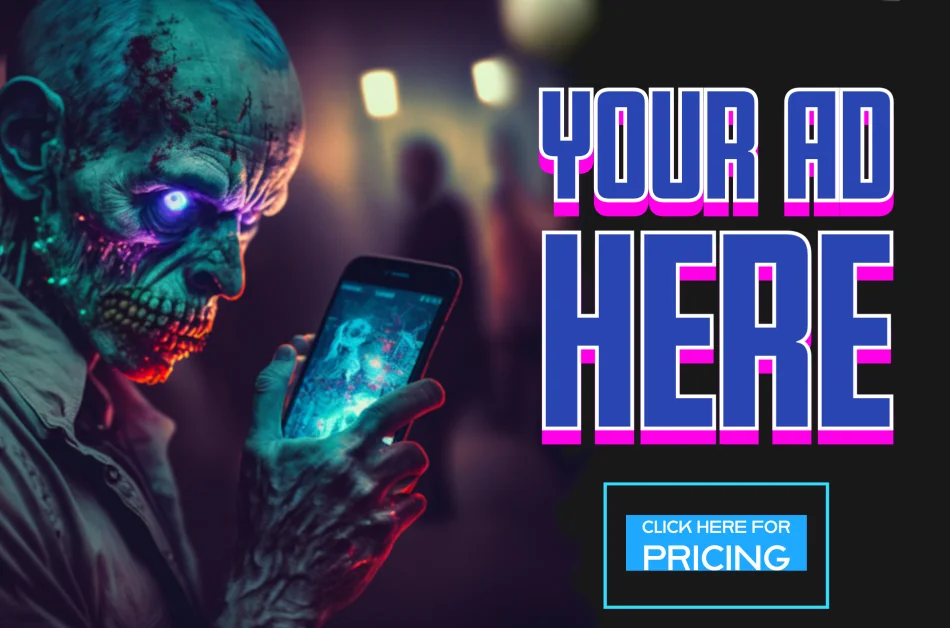


















You must be logged in to post a comment Login